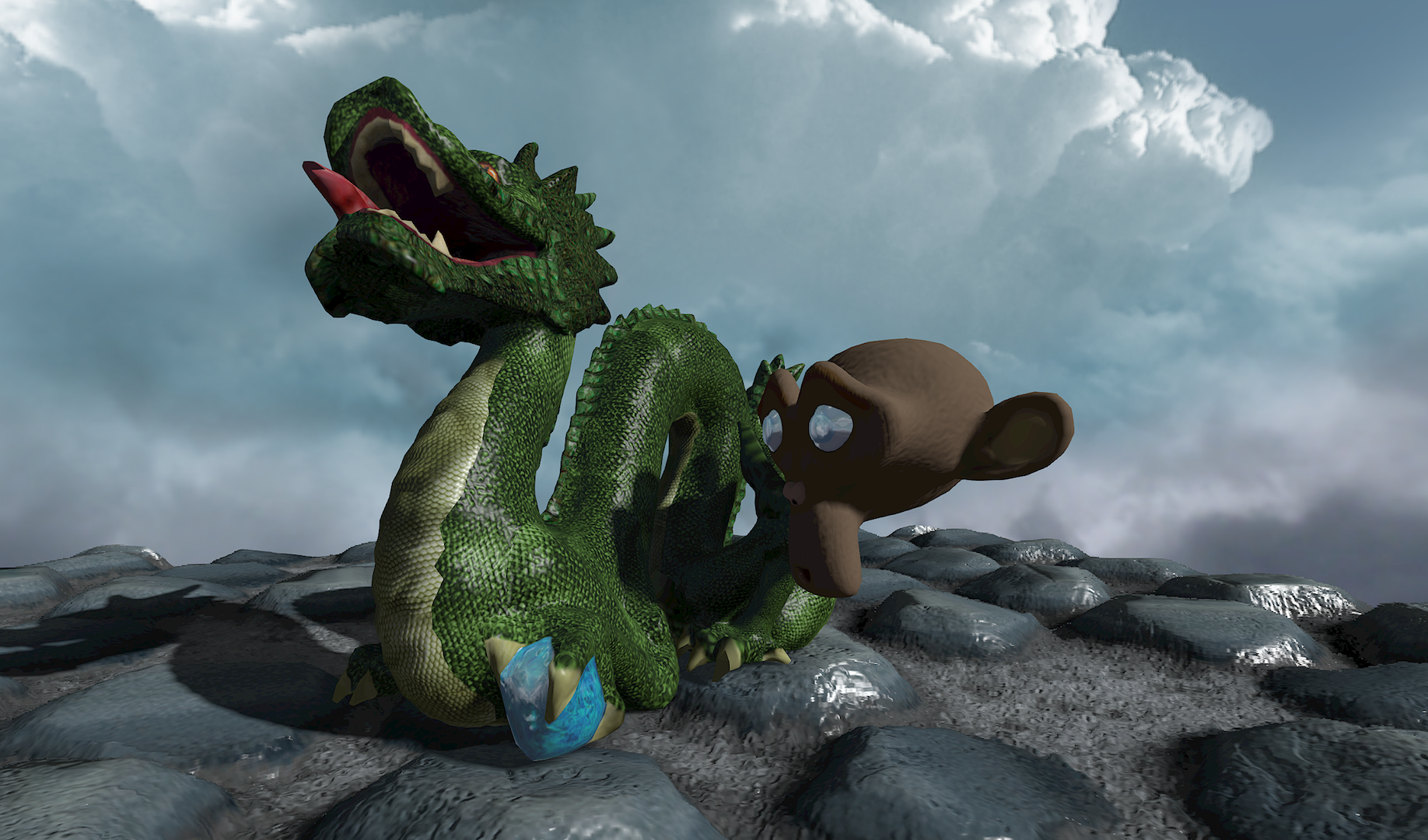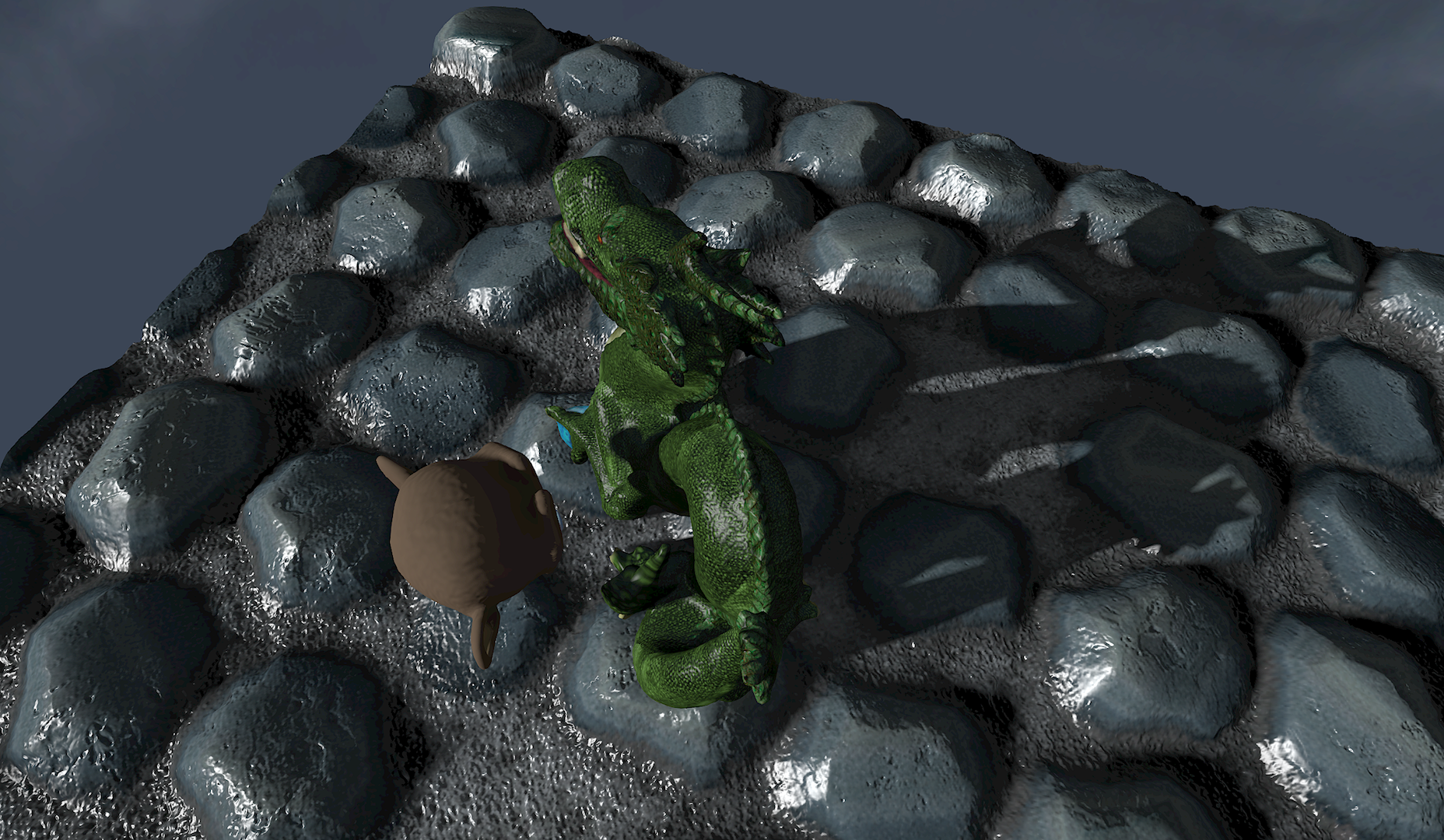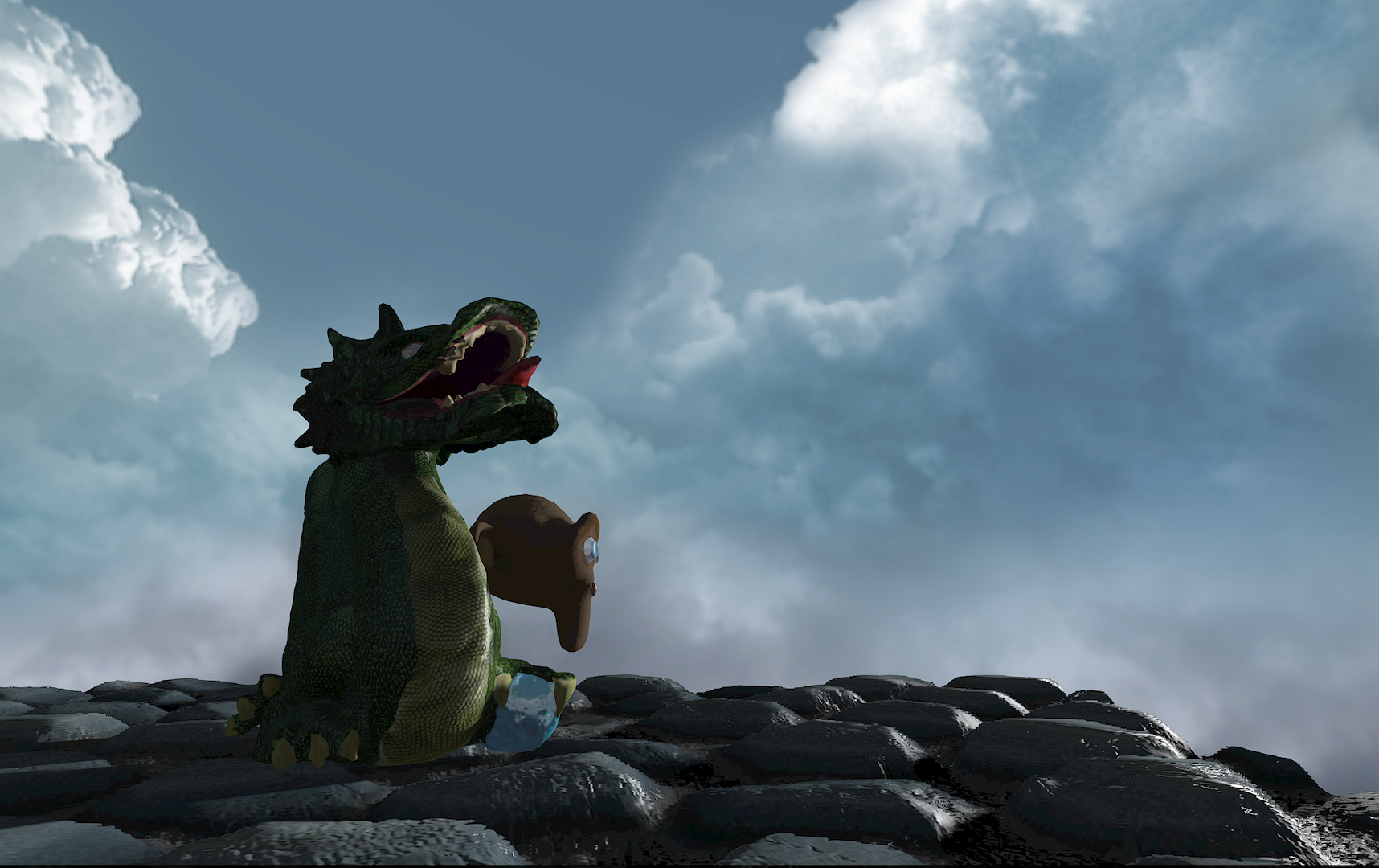Hic sunt dracones.
This repository contains multiple implementations of the same 3D scene, using different APIs and frameworks on various platforms. The goal is to provide a comparison between multiple rendering methods. This is inherently biased due to the variety of algorithms used and available CPU/GPU configurations, but can hopefully still provide interesting insights on 3D rendering.
The following versions are currently available:
- OpenGL (readme below )
- WebGL
- Metal
- SceneKit
- Unity
- Blender Cycles
- Ptah (a custom real-time renderer, see the Github page)
- Nintendo DS
- Nintendo Game Boy Advance
- PlayStation 2
The following versions are (tentatively) planned:
- Vulkan, DirectX, OpenGL ES
- other console hardwares
- another raytracing
In the directory of each version, one can find the source code, the corresponding ressources (as each method has its own format/quality constraints), along with a readme describing the method and a few examples. The only exception is the OpenGL project, which is described below.
The scene is composed of four main elements:
- a plane representing the ground, with a pavement texture.
- a dragon (the Stanford dragon).
- a monkey head ('Suzanne') rotating around its vertical axis.
- a skybox surrounding the scene, textured with a cloudy sky.
Additionally, the sun is simulated by using a directional light, and the camera should be able to rotate around the scene.
The initial 3D models and textures are contained in the OpenGL ressources directory.
The OpenGL version (available here) is the initial reference version. It is based on the OpenGL 3 features set, with the programmable pipeline, and use glfw3 for accessing the windowing system, user inputs,... It should be compatible with macOS, Windows and Ubuntu.
The following features are implemented:
- meshes and textures loading
- Phong shading/ per-pixel lighting
- Normal and specular mapping
- Skybox
- Environment cubemap for reflections
- Keyboard-controlled camera
- Variance shadow mapping
- Parallax mapping
- FXAA anti-aliasing
- Custom internal rendering resolution
The program is part of a more general tutorial project, available at GL_Template (might evolve with time).



